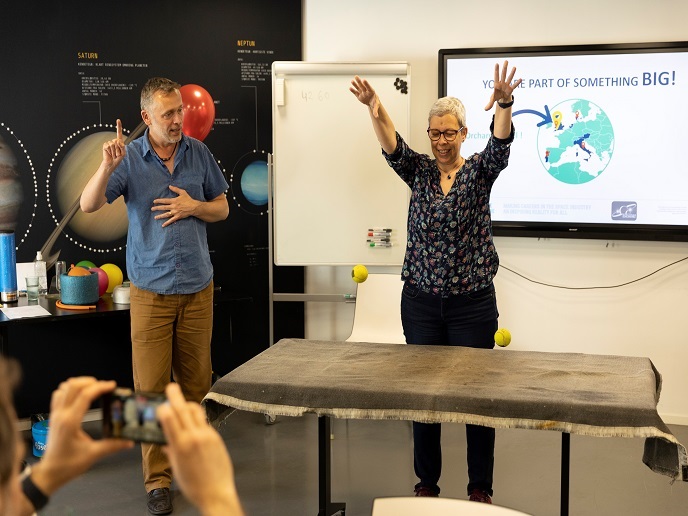Making space for everyone
For many young people, a career in space, such as being an astronaut, is just a fantasy profession they grow up dreaming about. At the same time, not many are aware that space careers go beyond being an astronaut. This is where the EU-funded Our Space Our Future project steps in. Its objective was to change attitudes to careers in space science and attract a more diverse workforce for the future of the space sector across Europe and beyond. “We wanted to show that working in the space industry was a desirable and achievable goal for young people of all backgrounds, and specifically show there are many opportunities beyond becoming an astronaut,” highlights project coordinator Wendy Sadler.
Sustainable education and outreach activities
Led by Cardiff University, the project worked with five expert school outreach organisations in Denmark, England, Italy, Portugal and Wales. Each delivery partner worked with 10 schools in their own country. Despite the COVID restrictions, they were able to reach over 4 500 students directly with multiple activities that aimed to break the stereotypes of the people who work in space and the kind of jobs that are done. The project also ran a rigorous academic study alongside the work. “We also wanted to show that work in the space industry is often about tackling problems connected to the climate and other issues here on earth. It isn’t only about exploring distant planets and going on rockets,” explains Sadler.
Tackling misrepresentation: space careers
Beyond the direct school visits with the project’s main partner schools, the project also developed a significant social media campaign on all the major platforms and tackled the misrepresentation about who works in the space industry. There was a very popular create your own space avatar tool that was shared widely online and offered diverse faces and job ideas. One of the biggest achievements of the project was narrowing the gender gap. “After the project, there was a bigger increase in interest and possible career choice in girls than boys,” confirms Sadler. “We also saw a big increase in statements about how work in the space industry was helpful to us here on Earth.” These achievements are in addition to designing and developing a toolkit with fun and interactive project materials for teachers and students to ‘reach the stars together’, amongst other achievements.
Opening the door to opportunities in space science
Many of the partner countries involved have already begun sharing the findings from this work with their national space agencies and governments to see how the learning can be adapted to tackle skills shortages in this and other STEM areas. The connections the outreach partners have made with industries and role models local to them will influence future education projects in schools across the five countries and beyond and help future generations build their confidence in STEM careers. “Teachers also said that they would be able to use the resources and ideas in future years to help them advise students of new and unusual career opportunities. We hope this will create a real legacy for the project,” concludes Sadler.
Keywords
Our Space Our Future, space industry, space science, space careers, STEM, outreach activities



